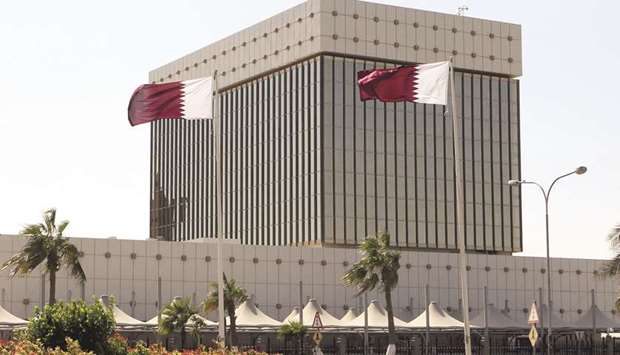The Qatar Central Bank (QCB) is certainly able to hold off on rate hikes for some time, given its large foreign exchange reserves, a senior analyst has said.
“However, with growth likely to accelerate this year as FIFA World Cup-related projects progress and hydrocarbon prices edge up, the case for delaying hikes in order to support the economy amid the GCC diplomatic crisis will weaken,” Andrine Skjelland, analyst, BMI Research told Gulf Times yesterday.
He said BMI expects the US Federal Reserve to raise its benchmark funds rate by 75 bps this year and 50 bps in 2019.
“And for this reason we believe the QCB will follow suit in order to avoid pressure on the riyal’s peg to the dollar,” Skjelland said.
Inflation will accelerate in Qatar in 2018, on the back of hydrocarbon price gains, BMI, a Fitch Group company said in a report. BMI analysts’ team forecasts Brent to average $65 per barrel in 2018 and $75/ b in 2019, from $54.7/b in 2017.
The QCB will – in line with the Fed – resume monetary tightening over the coming quarters as economic conditions improve, in order to protect the riyal’s dollar peg, the report said.
Rising hydrocarbon prices will drive a moderate uptick in Qatari price levels over the coming quarters. Overall, BMI expects inflation to average 2.6% in 2018, from 0.4% in 2017.
“The QCB will remain reluctant to close its narrowing interest rate differential with the US Federal Reserve in the immediate term, as it looks to support banks and boost growth amid elevated political uncertainty. We see minimal risks to the riyal’s dollar peg from this, given Qatar’s vast financial buffers. We, nevertheless, believe the QCB will resume monetary tightening over the quarters ahead, as rising hydrocarbon prices push economic activity and inflation up, limiting the case for further rate hike delays,” BMI noted.
“In addition to their direct inflationary impact (on transportation, and input costs more broadly), hydrocarbon prices are a key determinant of confidence and growth in the Qatari economy. As they increase, overall demand will pick up, sending price levels higher,” BMI said.
In particular, BMI notes that the deflationary trend seen in the housing segment in recent quarters is likely to ease beyond the immediate term. While fast expanding housing supply and cooling demand (amid low hydrocarbon prices and slower population growth) have put substantial downside pressure on prices in the past year, BMI believes the market will gradually stabilise towards the latter part of 2018, as economic activity picks up.
In response to the Fed’s latest rate hike in December 2017, the QCB raised its repo rate by 25 basis points (bps), but left its benchmark (overnight lending) rate unchanged at 5% – likely in order to ensure ample credit availability, and thus support economic activity at a time of heightened political uncertainty.
The QCB holds reserves equivalent to over 12 months of imports. In addition, the Qatari Investment Authority’s (QIA) assets are estimated to amount to over 200% of GDP (a substantial share of which is believed to be relatively liquid).

The QCB will eventually follow expected interest rate hikes by the US Federal Reserve this year in order to avoid pressure on the riyal’s peg to the dollar, according to BMI
